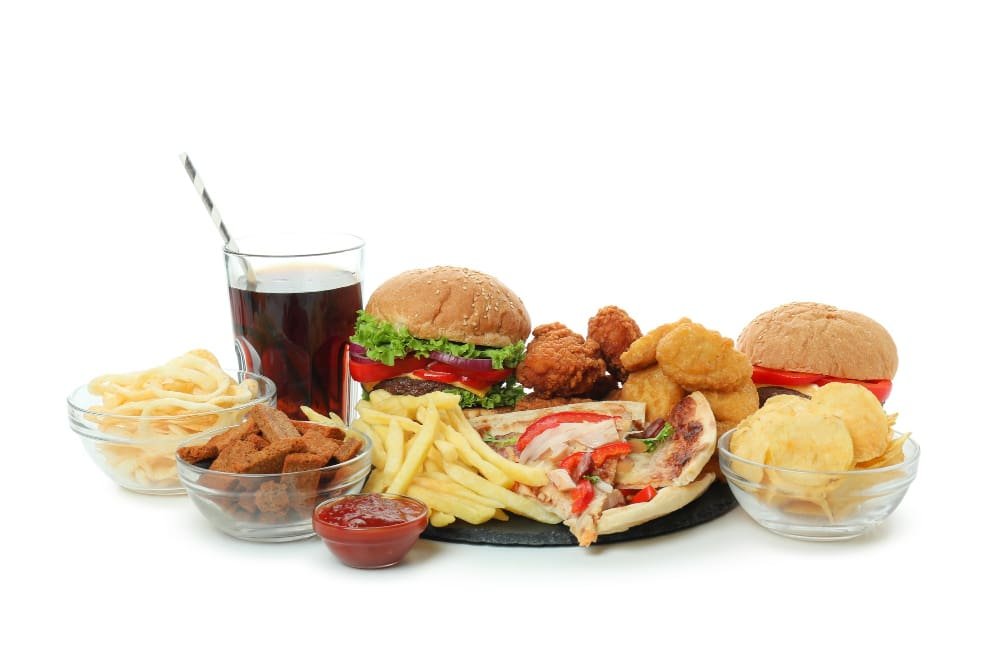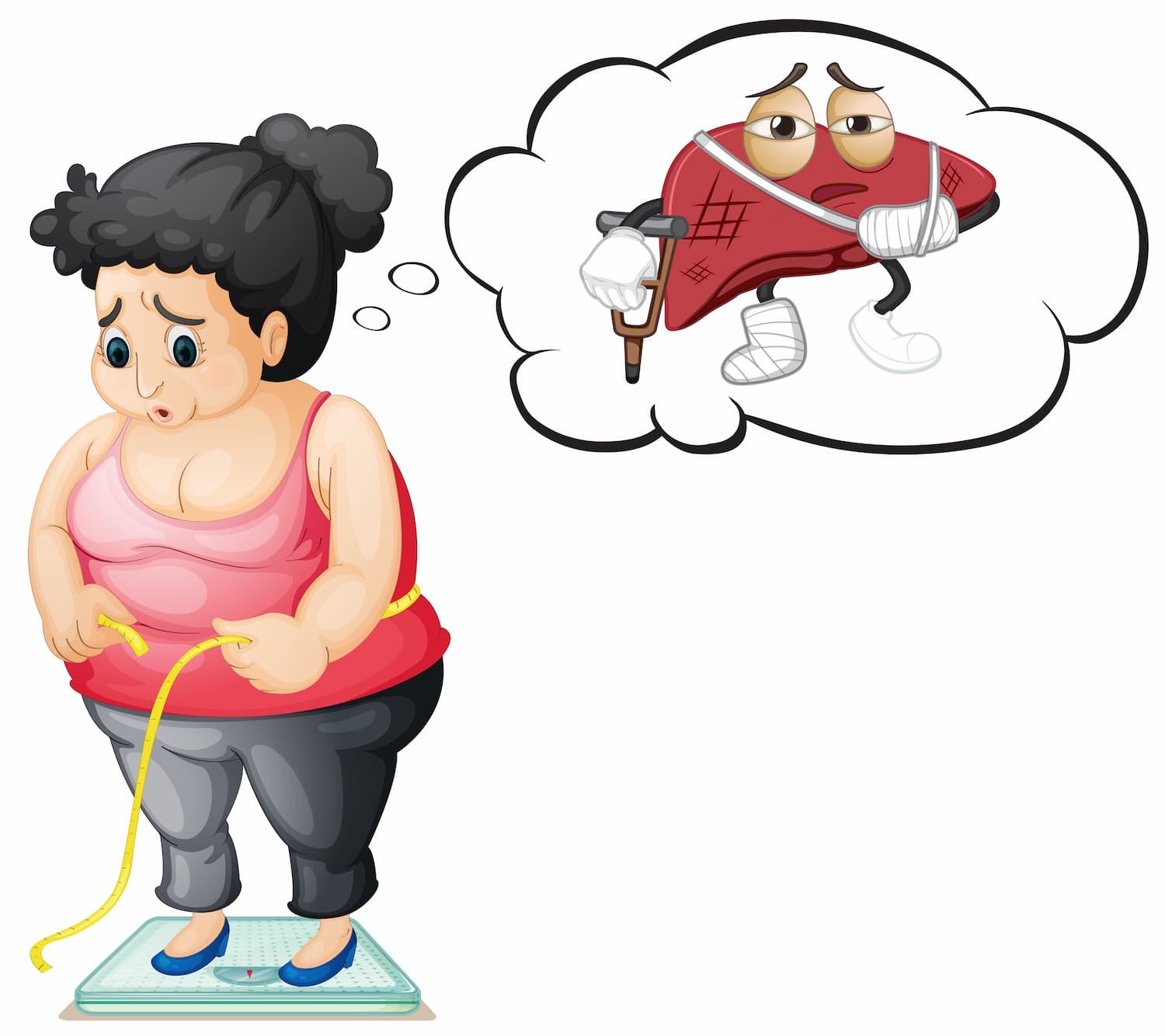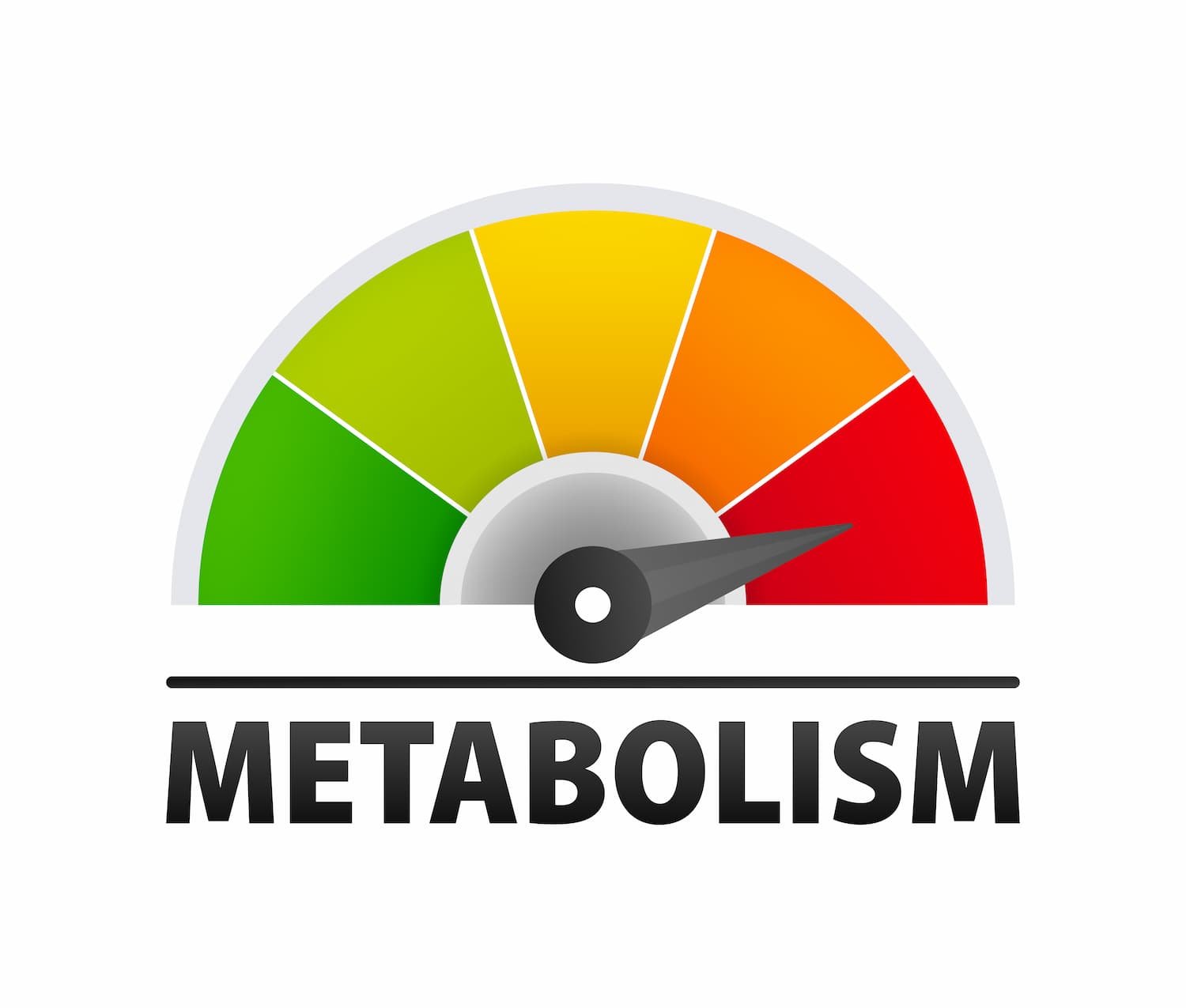To better understand the impact of processed foods on weight gain, delve into the introductory section, uncovering the explanation behind processed foods and the increasing prevalence of their inclusion in diets. Explore the detrimental effects they can have on our bodies and how they contribute to weight gain.
Table of Contents
Explanation of processed foods
Processed foods go through many changes and modifications during production. Cooking, freezing, canning, dehydrating and adding preservatives, additives and artificial ingredients are some of them. This is done to make the food taste better, have a longer shelf life and be more convenient.

Processed foods also have their unique aspects. They are easily found in stores and require minimal prep time. However, these foods can have drawbacks. High levels of added sugars, sodium, unhealthy fats and artificial additives can contribute to health issues.
Therefore, it is important to read the labels on processed foods. Choose options with lower levels of added sugars and sodium. The best way to stay healthy is to have a balanced diet with fresh fruits, veggies, whole grains and lean proteins.
Mention of the increasing prevalence of processed foods in diets
The use of processed foods is growing. With convenience and availability, people are relying on them. But there are concerns. These foods often contain high sodium, sugar, and unhealthy fats. These can lead to obesity, heart disease, and diabetes. Plus, they lack essential nutrients such as fiber, vitamins, and minerals.
In order to deal with this, people must be educated about the harms of processed foods. Awareness through nutrition campaigns and health initiatives can help people make better dietary choices.
Adding fresh fruit, vegetables, whole grains, lean proteins, and healthy fats can boost overall health. These nutrient-dense options provide essential vitamins and minerals while lowering processed food consumption.
Home-cooking is a great way to fight the spread of processed foods. Cooking at home lets people control ingredients and connect with food preparation. This encourages healthy eating and reduces dependence on processed food.
Food makers and policymakers must ensure healthier alternatives are accessible and affordable. Regulations on food labeling and advertising can help people make wiser purchasing decisions.
How Processed Foods Affect Weight Gain
To better understand how processed foods affect weight gain, delve into the high calorie content, the high sugar and unhealthy fat content, and how they can lead to overeating.

Explanation of the high calorie content in processed foods
Processed foods have a bad rep for being high in calories. But why? Added sugars and unhealthy fats give them extra calories. High-fructose corn syrup is one example – it’s empty calories with no nutritional value. Trans fats and saturated fats also make processed foods unhealthy.
Processing can add calories too. Frying and baking can involve oils and butter. Natural fiber and water get taken away in these processes, which makes the energy density higher.
Portion size distortion can also cause weight gain. Manufacturers often package processed foods in large amounts. This encourages overeating, and it’s hard to control portion sizes.
To stay healthy, read food labels and choose whole, unprocessed alternatives. Mindful eating is important too. Pay attention to hunger cues and portion sizes to avoid excessive calorie intake.
The consequences of consuming too many calorific processed foods are serious – obesity rates are increasing. Make conscious choices today to avoid a negative future.
Discussion on the high sugar and unhealthy fat content in processed foods
Processed foods are notorious for their high sugar and unhealthy fat. These substances can lead to weight gain, as they offer empty calories and no nutrition.

The high sugar content is a major issue. Too much sugar can cause cravings and overeating. It also quickly digests, causing blood sugar levels to spike and then plummet.
Unhealthy fats like trans fats and saturated fats promote inflammation and raise cholesterol levels.
It is essential to be aware of the effects of processed foods. Making informed choices is key to maintain a healthy weight. Whole foods provide vital nutrients while avoiding sugar and unhealthy fats.
Explanation of how processed foods can lead to overeating
Processed foods can cause overeating for multiple reasons. Firstly, they contain unhealthy levels of sugar and fat, which can be addictive and trigger cravings. Moreover, they are designed to be especially tasty with added flavors and preservatives.
Additionally, processed foods have little fiber and protein, which can help with satiety and decrease hunger. The convenience of these meals also makes them an attractive option for busy individuals.
Studies also show that people tend to eat more of these foods than whole ones. The packaging and marketing can lead to portion distortion and overconsumption.
To prevent eating too much of these foods, focus on whole, unprocessed ones. These include fruits, vegetables, lean proteins, grains, and healthy fats. These will provide nutrients and help avoid the risks of processed options.
Impact of Processed Foods on Metabolism
To understand the impact of processed foods on metabolism, delve into the effect of processed foods on insulin resistance and how they disrupt hormones related to weight management. Explore the consequences these sub-sections have on your body’s ability to maintain a healthy weight.

Discussion on the effect of processed foods on insulin resistance
Processed foods have a big effect on insulin resistance. It’s when the body’s cells don’t react to the hormone insulin. This results in higher blood sugar levels which might lead to type 2 diabetes. These foods are usually full of added sugars, bad fats and refined carbs. This increases the risk of insulin resistance.
Plus, processed foods lack important nutrients for healthy blood sugar levels. Such as dietary fiber, vitamins, minerals and antioxidants. The lack of these helpful substances makes it worse for metabolism and insulin function.
Also, these foods have a high glycemic index. Meaning, they make blood sugar levels go up quickly and significantly after eating them. This can cause insulin resistance if it happens often.
Some studies claim that certain additives in processed foods can also give you insulin resistance. Like, artificial sweeteners like aspartame and sucralose. They can affect glucose metabolism and change the composition of gut bacteria. Both of which raise the chance of insulin resistance.
Not all processed foods are bad. There are some healthy options with less processing and more nutrients. These include frozen fruits & veggies without extra sugars or sauces, canned legumes and fish in water or natural oils.
Tip: Try to eat fewer processed foods to limit the impact on your metabolism and reduce your risk of insulin resistance. Choose whole foods that are minimally processed or make meals using fresh ingredients at home.
Explanation of how processed foods can disrupt hormones related to weight management
Processed foods can seriously affect our metabolism. They contain high amounts of sugar, bad fats, and fake additives. These components can mess with the body’s natural hormone balance, making it hard to keep a healthy weight. Insulin plays a role in controlling blood sugar. When we eat processed sugars or carbs, it causes a quick rise in sugar levels.

This stimulates an excessive release of insulin which can lead to insulin resistance. Insulin resistance makes it tough for the body to manage weight. Processed food can also affect leptin and ghrelin. Leptin informs the brain when we have eaten enough. Ghrelin tells the brain when we are hungry.
When we eat processed food with a lot of calories but low nutrients, it can cause leptin resistance. This means that although we have enough fat stores, the brain doesn’t get the signal from leptin to stop eating. Plus, processed foods may boost ghrelin production, leading to constant hunger. Food processing has brought in the use of chemicals like preservatives, emulsifiers, and flavor enhancers.
These can disrupt our endocrine system by imitating or hindering hormones that control weight. Some research shows that artificial sweeteners in processed food may change gut bacteria and cause glucose intolerance. For years, processed food has affected hormones and weight management. Nowadays, with more fast-food options available, obesity rates have skyrocketed.
Although lifestyle plays a role, the consumption of processed food and its effects on hormones are major contributors to weight gain and obesity.
Other Factors Contributing to Weight Gain from Processed Foods
To better understand the various factors contributing to weight gain from processed foods, delve into the lack of nutrients present in these foods. Additionally, explore the addictive nature of processed foods and how it can impact your eating habits.

Mention of the lack of nutrients in processed foods
Processed foods are often lacking essential nutrients. They are usually highly processed and stripped of natural vitamins, minerals, and fiber. This can be bad for health and cause weight gain.
Our bodies may not recognize these foods as satisfying. This can lead to overeating and weight gain. Also, the lack of fiber can slow digestion, making us feel bloated or constipated.
To reduce the impact of processed foods, it’s important to include more nutrient-dense options in our diets. Whole, unprocessed foods like fruits, veggies, proteins, and grains provide us with the vitamins, minerals, and fiber our bodies need. These can keep us full for longer and lessen the chance of overeating.
Whole foods can improve our health by helping digestion and supporting a healthy metabolism. Fiber-rich foods help regulate blood sugar and keep us regular. This helps weight management and lowers the risk of chronic diseases like diabetes and heart conditions.
Discussion on the addictive nature of processed foods
Processed foods have gained a lot of attention in recent years. Studies show they can be linked to weight gain and health problems. They contain high levels of sugar, bad fats and additives that can stimulate the brain’s reward system, resulting in cravings and overeating.
Processed foods are also easy to get and affordable, making them more addictive. The combination of flavour, convenience and price makes it hard to resist.
Food companies use marketing tactics to promote processed foods. Ads and techniques entice customers with promises of pleasure. This creates an emotional bond with the products, making it tricky to break the addiction.
Personal stories show the damage of processed food addiction. Sarah was one example. She had weight issues due to her dependence on processed snacks and meals. Despite her attempts to change her habits, she still craved sugary foods.
Sarah changed her life for the better when she turned to whole foods. She included fresh fruits, veggies, proteins and grains in her diet. This helped her health greatly. Her story encourages many who are fighting the same addiction.
Strategies to Minimize Weight Gain from Processed Foods
To minimize weight gain from processed foods, focus on whole, unprocessed foods. Read food labels and choose healthier options. Limit consumption of processed foods and practice portion control.

Recommendation to focus on whole, unprocessed foods
Eating whole, unprocessed foods is the way to go for weight maintenance. Opt for natural foods with no added ingredients or preservatives. They have many benefits! For one, they are full of nutrients and fiber, making them more filling. You’ll be less tempted to overeat. Plus, they have fewer calories than processed foods! Also, they have way less added sugars and unhealthy fats. These can contribute to weight gain.
Whole foods also provide essential vitamins, minerals, antioxidants, and phytochemicals. They support our body functions and enhance our immunity.
The story of a woman who switched to whole foods is inspiring. She experienced an increase in energy levels and mood in just a few weeks. Plus, she effortlessly lost weight. Her skin was clearer and digestion improved.
It’s clear that whole, unprocessed foods are key to keeping a healthy weight and overall well-being. Making this switch in our diets can give us many benefits, not just preventing weight gain from processed foods.
Mention of the importance of reading food labels and choosing healthier options
Read food labels to choose healthier options. Examine nutrition facts and ingredients. For lower saturated fat, sugar, and sodium, opt for those products. Focus on whole foods. More fruits, vegetables, lean proteins, and whole grains can help improve health. Consider nutrient density over calorie content when selecting food.
Be mindful of portion sizes. Even if a processed food is labeled as “healthy,” consuming excessive amounts can still lead to weight gain. Moderation is key when incorporating processed foods into your diet.
Pro Tip: Prepare meals at home with fresh ingredients, rather than relying on processed foods. This way, you can have better control over the nutrition of your meals while still enjoying the taste of cooking.
Suggestion to limit consumption of processed foods and practice portion control
Today’s hectic lifestyle makes it hard to eat healthy. But, there are tips to help avoid gaining weight from processed foods and portion control. Here are five tactics:
- Check labels: Take time to read food labels. Look for added sugars, unhealthy fats, and salt. Pick products with fewer additives.
- Choose wisely: Select whole foods over processed options. Incorporate fresh fruits, vegetables, lean proteins, and whole grains into meals.
- Plan ahead: Plan and prepare meals in advance to avoid processed foods. Cook nutritious meals using fresh ingredients.
- Control amounts: Be aware of how much you eat by practicing portion control. Use smaller plates or bowls and limit second helpings.
- Find healthier snacks: Skip chips and sugary snacks. Opt for nuts, seeds, yogurt, or fresh fruit for essential nutrients and fewer calories.
Small changes can have huge benefits for health. Slowly cutting down on processed foods and focusing on portion control can make a difference. Exercise regularly to help manage weight and feel better.
Take charge of your health today! Implementing these strategies can prevent weight gain and boost your quality of life. Don’t let processed foods stop you from achieving your health goals. Live a balanced and nutritious lifestyle for long-term success!
Conclusion
To understand the impact of processed foods on weight gain, consider the following conclusion. Summarizing the effects of processed foods on weight gain can provide valuable insights. Additionally, encouragement to make conscious choices for a healthier diet is offered as a solution.
Summarizing the impact of processed foods on weight gain
Processed foods have a big impact on weight gain – undeniable! Loaded with additives, preservatives and artificial ingredients, these unhealthy food options have high levels of refined sugars, trans fats and sodium. This leads to increased calorie consumption and disrupts natural hunger signals.
Plus, lacking essential nutrients such as fiber, vitamins and minerals, processed foods leave one feeling unsatisfied, leading to overeating. The high sugar content causes blood sugar spikes and crashes, creating cravings for more unhealthy foods and more weight gain.
Studies show individuals who eat a lot of processed foods are more likely to be overweight or obese than those who follow a whole foods-based diet. This makes sense, given the negative impact of processed foods on metabolism and satiety.
History shows that since the rise of processed foods, obesity rates have skyrocketed. Technology and marketing strategies promote these products as convenient, but the side effect is weight gain.
Encouragement to make conscious choices for a healthier diet.
Take control of your health by choosing a healthier diet! Incorporate fruits, vegetables, whole grains, and lean proteins into meals for essential nutrients. Reduce processed foods and sugary drinks to maintain a healthy weight and support heart health. Mindfully eat, listening to hunger cues and savoring flavors. Staying hydrated is key – drink lots of water throughout the day for bodily functions, digestion, and energy. Educate yourself on nutrition labels and ingredient lists to make informed decisions.
Make conscious choices and join the journey to better health – for a healthier future start today!
Related Posts:
- Exploring 15 Healthy Foods Loaded with Beneficial Carbohydrates
- Your New Favorite Drink – A Delicious Apple Shake Recipe
- Can Apple Cider Vinegar Aid in Achieving Weight Loss? A Detailed Analysis
- Low Carb Indian Foods
Frequently Asked Questions
How do processed foods contribute to weight gain?
Processed foods often contain high levels of added sugars, unhealthy fats, and refined carbohydrates. Consuming these ingredients in excess can lead to weight gain as they are typically calorie-dense and provide little nutritional value.
Are all processed foods equally responsible for weight gain?
Not all processed foods are equally responsible for weight gain. Highly processed and ultra-processed foods, such as sugary snacks and fast food, are more likely to contribute to weight gain due to their high calorie content, while minimally processed foods like frozen fruits or vegetables may have fewer negative effects on weight when consumed in moderation.
How can processed foods affect my appetite?
Processed foods often lack fiber and protein, which are essential for promoting feelings of fullness and suppressing appetite. As a result, people tend to consume larger portions of processed foods without feeling satisfied, leading to overeating and potential weight gain.
Can processed foods impact metabolism and hinder weight loss?
Yes, processed foods can impact metabolism. Some additives and preservatives commonly found in processed foods can disrupt hormonal balance and negatively affect metabolic functions, potentially hindering weight loss efforts.
How can I make healthier choices to avoid weight gain from processed foods?
To make healthier choices, focus on consuming whole, unprocessed foods such as fruits, vegetables, lean proteins, and whole grains. Be mindful of reading food labels and avoid products with high levels of added sugars, unhealthy fats, and artificial additives.
Are there any other negative health effects associated with consuming processed foods?
Yes, besides weight gain, a diet high in processed foods has been linked to various health issues such as increased risk of heart disease, type 2 diabetes, and certain cancers. It is advisable to prioritize a balanced diet consisting of mostly whole foods to maintain overall health and well-being.